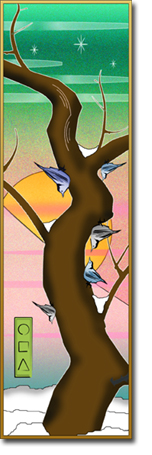On The Way: The Daily Zen Journal
Selections from the Diamond Sutra
Buddha

Conventional Truth Should be Cut Off
Subhuti, if anyone should say that Buddha declares any conception of egoity do you consider he would understand my teaching aright?
No, World-Honored One, such a person would not have any sound understanding of the Tathagata’s teaching because the World-Honored One declares notions of selfhood, personality, entity, and separate individuality, as really existing, are erroneous—these terms are merely figures of speech.
Subhuti, those who aspire to the consummation of incomparable enlightenment should recognize and understand all varieties of things in the same way and cut off the arising of views that are mere aspects. As regards aspects, the Tathagata declares that in reality, they are not such. They are merely called “aspects.”

The Delusion of Appearances
Subhuti, someone might fill innumerable worlds with the seven treasures and give all away in gifts of alms, but if any good man or any good woman awakens the thought of enlightenment and takes even only four lines from this discourse reciting, using, receiving, retaining, and spreading them abroad and explaining them for the benefit of others, it will be far more meritorious.
Now in what manner should one explain them to others? By detachment from appearances—abiding in the real truth. So I tell you:

Thus shall ye think of this fleeting world:
A star at dawn, a bubble in a stream;
A flash of lightning in a summer cloud,
A flickering lamp, a phantom, and a dream.
When Buddha finished this discourse the venerable Subhuti, together with the bhikshus, bhikshunis, lay brothers and sisters, and the whole realms of gods, men, and titans were filled with joy by his teaching and, taking it sincerely to heart, they went their ways.

Thus ends the Diamond Sutra
Buddha





How often in practice have we wondered how best to essentialize what we are studying? When one tries to “explain” what Buddhism or Zen is to someone, one can get tangled up in concepts that only serve to complicate the heart of the teaching.
In this brief section from the end of the Diamond Sutra, it is all perfectly encapsulated for us. Very often a poem or story from Buddhism conveys the heart of the teaching better than anything else. If you had to choose one story from practice to illustrate the principle that speaks to you the most, which one would it be?
Returning to nothing extra,
Elana, Scribe for Daily Zen